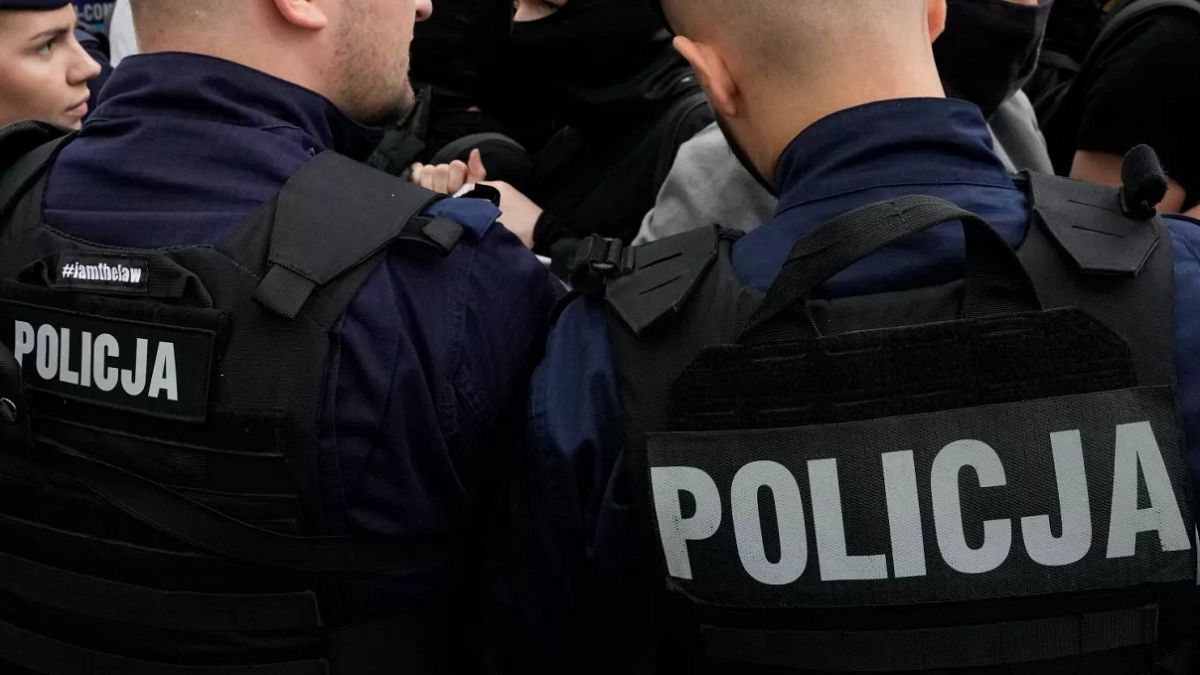ADVERTISEMENT
Authorities in Poland charged a Colombian national with terror offences on Tuesday for his role in two arson attacks, allegedly carried out on behalf of Russia.
“Officers of the Internal Security Agency (ABW) have determined that a 27-year-old Colombian man who acted on behalf of Russian intelligence was behind two arson attacks that occurred in Poland in May 2024,” spokesperson for the Ministry of Internal Affairs and Administration, Jacek Dobrzyński, said during a press conference.
ABW said the 27-year-old suspect, who entered Poland from Spain, set fire to two construction supply depots in May last year, following orders from Moscow as part of a hybrid warfare campaign.
Dobrzyński said the man had been taught how to prepare incendiary materials, construct Molotov cocktails and document the effects of sabotage actions by Russia’s secret services.
According to a communiqué issued by the ABW, the suspect’s actions fit with previous incidents identified in many Central and Eastern European countries.
“It has been confirmed that Russian services, using Telegram, systematically and on a large scale recruited persons of Latin American origin, with military experience, to carry out reconnaissance of the locations indicated to them and then to set fire to the selected objects and to document the destruction,” the ABW statement stated.
Russian secret services allegedly encourage citizens of South American countries coming to EU countries under the visa-free regime to commit crimes, offering them an easy way to make money.
Fires in Warsaw and Radom
The first incident occurred in Warsaw on 23 May last year, when a building supply depot was torched. A week later, on 30 May a similar facility went up in flames in Radom.
“Thanks to the immediate action of the firefighters, the fires were quickly extinguished,” Dobrzyński said.
As the ABW explained, Russian-language media used both fires for propaganda purposes and in particular the Radom fire was falsely said to be a “logistics centre with military aid for Ukraine.”
The Colombian man had already been sentenced to eight years in prison by a Czech court in June this year for setting fire to a bus depot in Prague and preparing to set fire to a local shopping mall.
The suspect has partially admitted his guilt and could face up to life imprisonment.
Not the first such case
Jacek Dobrzyński stressed that “in addition to these acts, disinformation used by the Russian services is also incredibly dangerous.”
“Russian services are trying to disinform, they are trying to divide Poles, they are trying to split Poles from the European Union or from NATO members,” he said.
Poland and some other countries in the region were the victims of a series of acts of sabotage last year, among them a a fire that completely destroyed the largest shopping centre in Warsaw.
In May, Poland said it was closing the Russian consulate in Kraków in response to evidence that Moscow was behind that fire.
And in October last year, Poland’s Foreign Minister Radosław Sikorski ordered Moscow to shutter its consulate in Poznań and declared its staff persona non grata in response to a string of sabotage and cyberattacks.
Authorities have blamed Russia of carrying out a campaign of hybrid warfare, particularly targeting countries that support Ukraine, and say Moscow often recruits Ukrainian and Belarusian immigrants to carry out the attacks.

